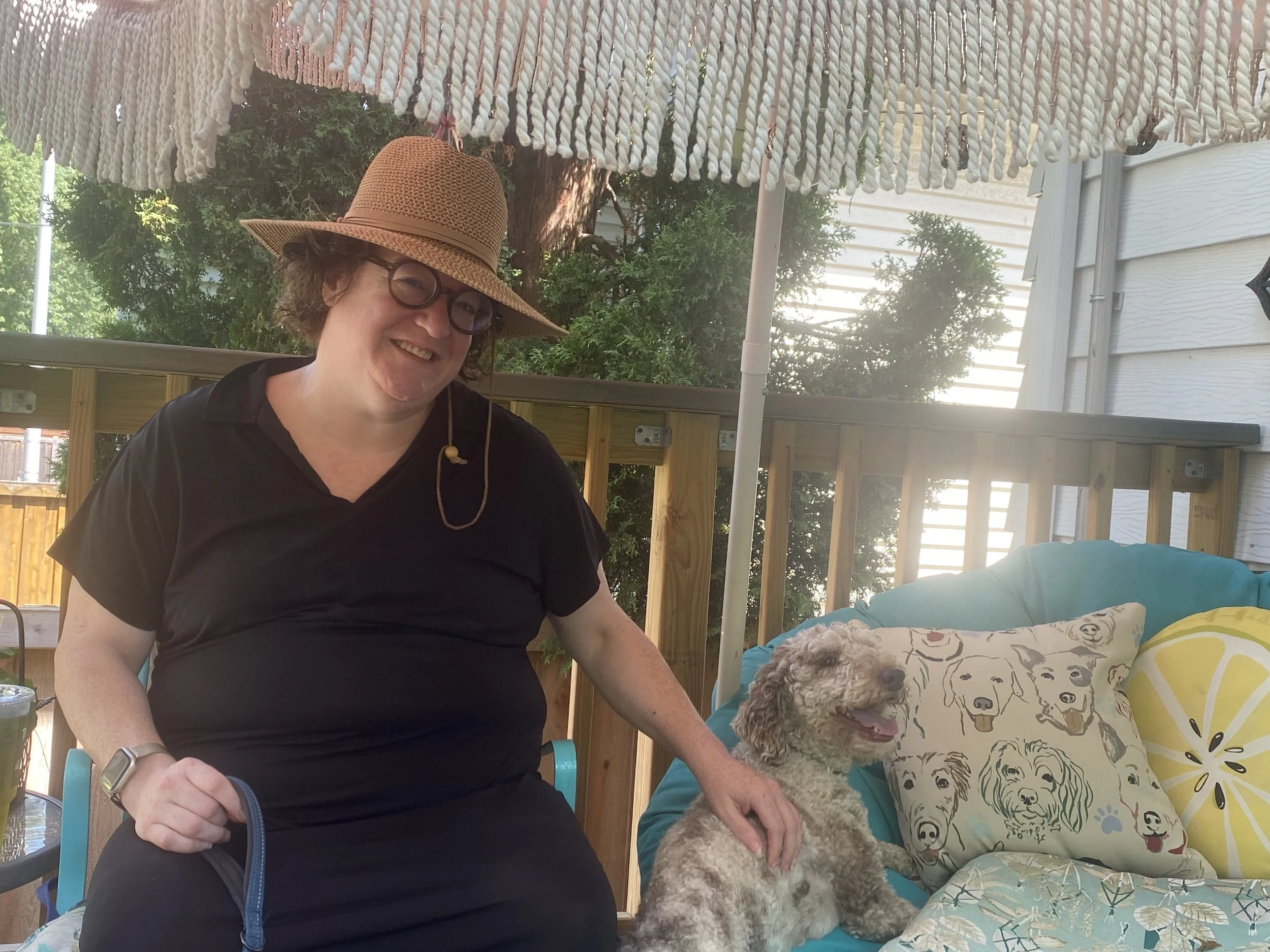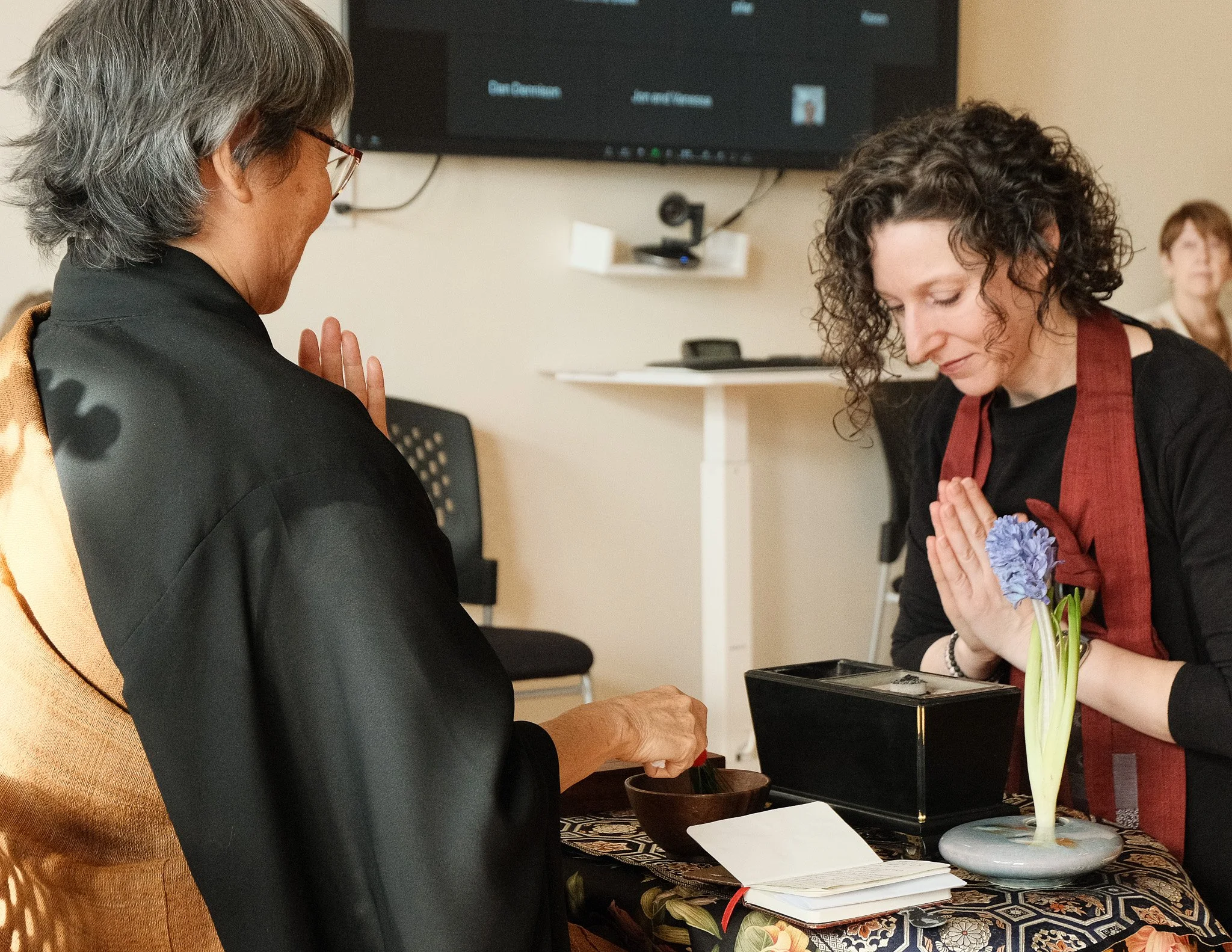
Mindfulness Meditation Teacher
Skye Jigen Lavin
Skye is certified by ZLMC as a “Mindfulness and Meditation Teacher”.
Skye Jigen Lavin grew up on a family farm in Racine County, Wisconsin with two younger sisters. Their spiritual education was beautifully pluralistic—attending Catholic parish school for academics, a Jewish temple for spiritual learning, whirling with the Sufis, singing bhajans with followers of Sai Baba, and encountering Tibetan Buddhism as a family. This diverse upbringing was a fundamental teaching on the emptiness of forms and the universality of the path.
Studying literature at Yale University, Skye took a class on “the Phenomenology of the mystical experience” that inspired her to spend two years in the foothills of the Himalayas. Upon returning to the U.S. she worked at Tricycle magazine, took an MFA in delusion… er fiction… at the Iowa Writers’ Workshop, and discovered Zen. Zen practice contributed ethical principles to bring order to creative chaos. Her Zen practice deepened after encountering the blazing warmth and wisdom of Roshi Robert and Roshi June in 2009. "Every meeting sets fire to my delusion of isolation," Skye reflects. After living in Cambridge, MA and returning to Oak Park, Skye remains grounded by the presence of the Center, the sangha, and the deep accuracy of the dharma, particularly the Four Noble Truths.
In 2019, Skye participated in a Zen Peacemakers Street Retreat with Roshi Genro, Sensei June, and others—an experience chosen precisely because it was frightening. "The retreat spoke intimately to my greatest fear of losing my comfortable life and falling out of society," Skye reflects. The retreat pushed beyond habitual intellectualizing into direct experience with people on the street, the elements, and a circle of friends braving trust in Chicago's innate generosity. "I have a powerful respect for the resourcefulness, strength, and ordinariness—the just like you and me-ness—of people who live on the street."
Skye currently stewards the Samadhi Reading Circle. "Why am I so passionate about reading and writing as a big part of my Zen practice? Much of my spiritual path involves finding ways to get out of my head," Skye muses, wrestling with D.T. Suzuki's assertion that "no amount of reading will ever make one a Zen master." Yet Skye embraces the paradox: "At this point I have no idea what Zen is. I couldn't define it if pressed. All I know is that it is great to take part in this inquiry together with others in the sangha who love to practice Zen. In the end, no matter how we choose to come together—whether begging on the street, sitting in the Zendo, or reflecting in a Circle devoted to reading—our practices only deepen with the sincere encounter."





